

Music lessons are 30 minutes in length for beginners and intermediate students. More advanced students will require longer lessons. Lessons are taught privately with one-on-one sessions (parents are welcome to sit through their child's lesson). In addition to lessons, I host two annual student recitals - usually in January and June.
Students often also participate in festivals such as the Yellowhead Rotary Arts Festival or in Royal Conservatory of Music (RCM) exams to acheive grade-levels. Part of a student's lesson could be dedicated toward preparation for one of these events.
Lessons are taught in my studio in Hinton, Alberta. I am willing to accept students from neighboring towns.

Practice makes perfect
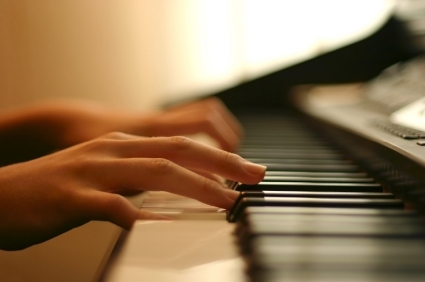 Each family with a piano or violin student must have a piano or a violin in their home for the student to practice on. The amount of practice required for the violin or piano depends on the level of playing and goals of the student. Generally, half an hour per day is usually sufficient for beginning students. The very young student might do better with three 10 minute sessions per day. A longer time period is usually necessary for more advanced students. As a rule of thumb, students should plan to practice daily for at least as long as the length of their lesson.
Each family with a piano or violin student must have a piano or a violin in their home for the student to practice on. The amount of practice required for the violin or piano depends on the level of playing and goals of the student. Generally, half an hour per day is usually sufficient for beginning students. The very young student might do better with three 10 minute sessions per day. A longer time period is usually necessary for more advanced students. As a rule of thumb, students should plan to practice daily for at least as long as the length of their lesson.
Major and minor scales are very important and all students are expected to play them as soon as they are able for both instruments. For the violin they are a good tool for learning bowing techniques and they help immensely with intonation and fluency of fingers.
Teaching Methods
Students of any age learn to play an instrument in a variety of different ways. Therefore, in teaching my students to learn the basics of piano or violin, I blend traditional methods with the Suzuki method. With my teaching, students will have access to a variety of music books suited to their own individual programs and they will learn to read music at the same that time they learn to play the instrument. If a student is a candidate for an exam administered by the Royal Conservatory of Music (RCM), I focus on the pieces, the studies, and technical requirements needed for their exams.
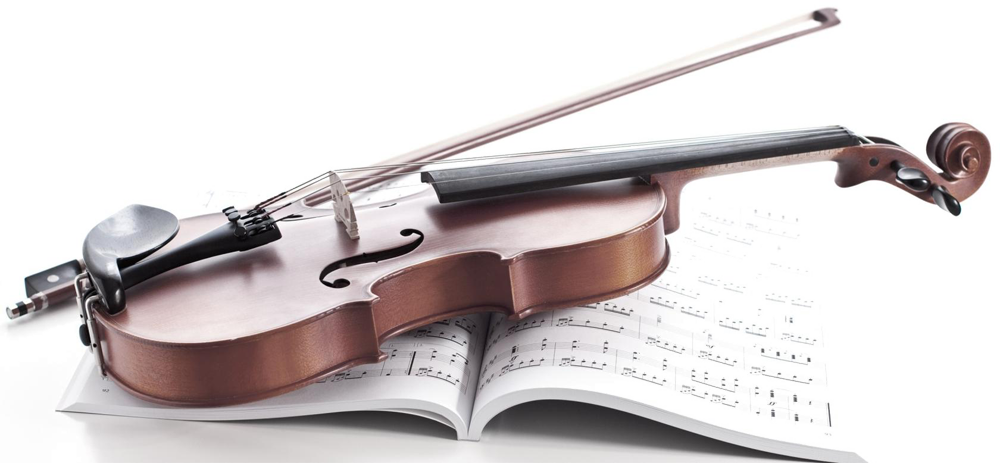
Violin Students
For the violin, very young beginners will start playing by rote using the Suzuki method with concentration on the position of the instrument and bow. We will then begin to read music by clapping and playing the different rhythms that are in the piece of music that is to be learned.
Older beginners (ages 7 and up) start with Paul Herfurth's classic, "A Tune A Day, Book 1". Younger students begin with the Suzuki Method using "Suzuki Violin School, Vol. 1" with CDs for listening and "I can Read Music, Vol. 1" by Joanna Martin. Other books are added as the students progresses. Advanced students should bring whatever music they have to the first lesson and we will decide from there whatever else is needed.
Each violin student will need a violin that is the correct size. There are many stores that rent violins and these places can help to determine the correct size for the student. Or, if you prefer, I can do these measurements for you. Violin students will need a small amount of rosin which can be obtained at any violin shop and a clean cloth for wiping the violin after playing.Many students also need a shoulder rest. These come in a variety of shapes and sizes but for reasons of practicality, it's best to acquire one after having played for a while to determine which size is appropriate and what is most comfortable.
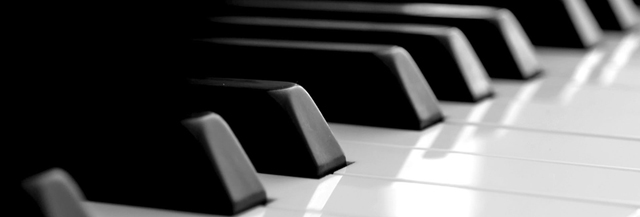
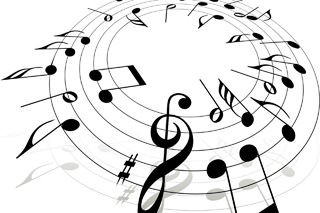
Piano Students
For the beginner piano student I use traditional methods of teaching. I use the Nancy and Randall Faber Piano Adventures series (primer level)) for young beginners in a packaged set of four books (Lesson, Theory, Technique, and Performance). For older beginners, I use the same series but written specifically for the older beginner. When they have reached level two in the Faber series, students can start with the RCM Series if they are interested in taking an exam administered by the Royal Conservatory of Music.
Piano students will need to have a piano in the home - or daily access to a piano. A traditional acoustic piano is preferred over an electric keyboard because students interested in performing or challenging exams need to be familiar with the feel of a real piano. That being said, there are many high-end electric keyboards now available that provide authentically weighted keys.
Theory Students
I currently also offer musical theory lessons to students interested in obtaining: RCM Preliminary Rudiments; RCM Rudiments Grade 1; and, RCM Rudiments Grade 2. Musical theory training is for students looking to further their understanding of musical theory or to advance beyond grade four piano or violin with the Royal Conservatory of Music (RCM) accreditation program. Please note that Theory lessons are optional for students that choose not to pursue accreditation beyond grade four through RCM.
Performance
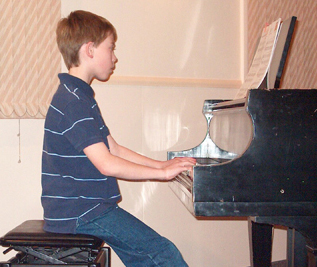 Performance is an intimidating experience which many shy away from. However, I consider performance to be an important part of the learning process. Therefore, I encourage my students to search out as many performance opportunities as possible such as playing for family, friends, retirement homes, the Yellowhead Rotary Arts Festival, and at two annual piano/violin recitals hosted by me.
Performance is an intimidating experience which many shy away from. However, I consider performance to be an important part of the learning process. Therefore, I encourage my students to search out as many performance opportunities as possible such as playing for family, friends, retirement homes, the Yellowhead Rotary Arts Festival, and at two annual piano/violin recitals hosted by me.
Receive Alberta High School Credits
In addition to furthering your enjoyment of music, private music lessons can also help you graduate from High School. Piano and Violin students that pass their RCM Grade 6 exam and complete Intermediate Rudiments of Theory will receive credit for High School Grade 10; RCM Grade 7 with Advanced Rudiments of Theory will provide credit toward High School Grade 11; and, RCM Grade 8 will provide credit for High School Grade 12. For more information, please visit the RCM website.
If you have specific question about the violin or piano that aren't answered here, please don't hesitate to contact me by clicking the "Contact" button in the menu at the top of the page or by calling me at 780-223-1026.